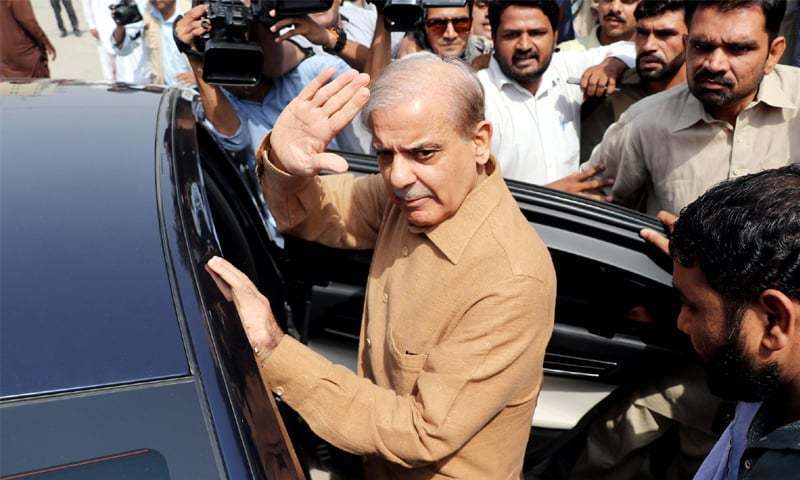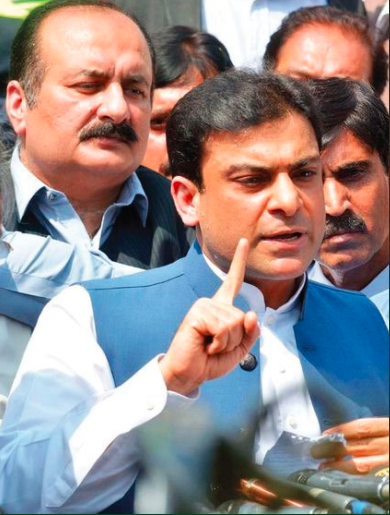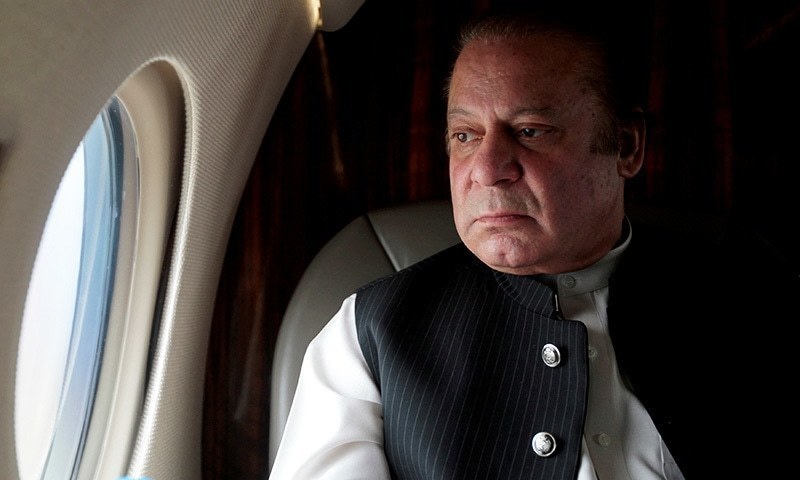A few days ago, a special court in Lahore acquitted Prime Minister Shehbaz Sharif and his son Hamza Shehbaz in a Rs16 billion money laundering case filed by the Federal Investigation Agency (FIA) two years ago. Judge Ijaz Hassan Awan announced the verdict after FIA had told the court that no transaction was made in the bank accounts of Shehbaz Sharif and Hamza Shehbaz from unnamed accounts.


Similarly, in a recent verdict, a division bench of the Islamabad High Court (IHC) set aside the conviction of Pakistan Muslim League-Nawaz (PML-N) Vice-President Maryam Nawaz and her husband Captain (retd) Mohammad Safdar, handed down by an accountability court in the Avenfield reference four years ago and acquitted the couple. The verdict indicates that the web of lies and manipulation to keep PML-N leadership out of power is now unravelling.
In July 2018, the accountability court, on flimsy charges, sentenced Maryam to seven years in prison and slapped a fine of two million pounds on her while her husband was sentenced to one year in prison. The couple was later released on bail and their appeals had been pending since their conviction.
During the hearing of the appeals, the National Accountability Bureau (NAB) prosecutor failed to prove the charge that Maryam Nawaz was the beneficial owner of Avenfield flats located in London. The court also observed that PML-N supremo Nawaz Sharif’s name was nowhere in the documents.
The IHC decision in favour of Maryam Nawaz, and the earlier arrests and subsequent acquittal of other PML-N leaders including Shahid Khaqan Abbasi, Ahsan Iqbal, Khawaja Saad Rafique, Rana Sanaullah and others laid bare the so-called accountability employed by the NAB for political victimization of opposition parties, especially the PML-N leadership. Just a week before Maryam Nawaz and her husband were given relief, the Islamabad High Court acquitted PML-N leader and Planning Minister Ahsan Iqbal in the Narowal Sports City reference after the NAB failed to prove the charges against him.
The PML-N leadership has been facing NAB cases since former dictator Pervez Musharraf usurped power in 1999, but the recent accountability drive against the family was sparked by the so-called Panama Leaks in April 2016, which listed the names of Mian Nawaz Sharif’s sons as owners of offshore companies. The irony in the Panama Leaks was that it contained names of over 400 Pakistanis and none were pursued by the NAB or any other accountability agency other than Nawaz Sharif and his family. Names of Pakistan Tehreek-e-Insaf (PTI) leader Imran Khan’s friend Zulfi Bukhari and his sister Aleema Khan were among those named in the leaks but they enjoyed complete immunity from the so-called accountability.

After the Panama Leaks, Nawaz Sharif was first removed from the office of prime minister on flimsy charges and then arrested and jailed only to be released on medical grounds. His daughter Maryam Nawaz was also arrested by the NAB earlier on fake graft charges and later sentenced by an accountability court. His brother Shehbaz Sharif, who served multiple terms as chief minister of Punjab, also faced charges, all without proof, through the years and he was also arrested in a housing scheme case before he was granted bail.
No corruption charges against Nawaz Sharif could be established during his trial and he was disqualified from holding public office for not taking his salary from his son during his exile in Saudi Arabia when the Sharif family started a business abroad. The verdict against Nawaz Sharif was widely condemned by the legal fraternity including eminent lawyers. It is also important to note here that Interpol refused to arrest and repatriate Nawaz Sharif’s sons to Pakistan and declared that the proof against them (Hussain and Hassan Nawaz) was insufficient.
After the PTI came into power in 2018 through massive electoral manipulation, the accountability drive continued to revolve around the PML-N leadership. PTI’s main campaign slogan was fighting corruption but the NAB kept a mysterious silence against the PTI leaders including Imran Khan for the alleged misuse of the official helicopter. Meanwhile, the proof of undisclosed properties owned by Imran Khan’s sister Aleema Khan surfaced. She accepted the ownership but was allowed to go scot-free. Probes against PTI bigwigs such as Pervez Khattak, former KP chief minister, in the Malam Jabba case were also swept under the carpet by the NAB.
NAB claims to carry out unbiased accountability. However, the IHC judgment in the Avenfield case and other observations by higher courts make it evident that the anti-graft body was used to suppress political opponents, especially the PML-N leadership during the tenure of the PTI — a venomous campaign masquerading as a quest for justice.
In 2020, the Supreme Court, in a detailed judgment in the Paragon Housing corruption reference involving Khawja Saad Rafique and his brother Salman Rafique observed that the NAB seemed to be reluctant to proceed against people on one side of the political aisle in respect of financial scams of massive proportions and on the other hand, it arrested and incarcerated opposition leaders for months and years. The apex court had observed that the one-sided accountability was aimed at teaching lessons to the opponents.
“This is the dignity of man and one of the grave consequences of pre-arrest confinement, is the humiliation and disgrace resulting from such arrest, for not only the accused but also his family and persons attached to him,” the SC judgment said adding that “the arrest causes irreparable harm to a person’s reputation and standing in society, often subjecting him to hate, vitriol, and infamy.”
On the National Accountability Ordinance 1999, the judgment said: “…these laws … were framed and applied with an oblique motive of arm twisting and pressurizing political opponents into submission, subjugation and compliance, or remove them from the electoral scene at least temporarily.”
In an earlier Hudaibiya Mills case, the Supreme Court had concluded that the only motive was to pressure the Sharif family. In another case against Mian Shehbaz Sharif, the Lahore High Court had observed that it was selectively picked up by the NAB to target him.
In 2019, a video surfaced where an accountability judge admitted that he was pressured to convict Nawaz Sharif and his daughter Maryam Nawaz. Despite the admission of the judge and his subsequent dismissal from service, Nawaz Sharif has not been given any relief from the conviction.
The removal of Imran Khan from the office of the prime minister through a vote of no confidence in April this year created space for other political actors. The acquittal of the PML-N leaders one by one by higher courts lends credence to the fact that all cases against them were politically-motivated and the NAB had no solid evidence to prove its claims.
After the IHC verdict in the Avenfield reference, all eyes are now set on the Islamabad High Court when it takes up the appeal of former prime minister Nawaz Sharif against his erroneous conviction by the accountability court. The recent decisions of higher courts in NAB cases have kindled hope that Nawaz Sharif would eventually get justice, paving the way for his return to Pakistan to serve his country.
The acquittal of the PML-N leaders one by one by higher courts lends credence to the fact that all cases against them were politically-motivated and the NAB had no solid evidence to prove its claims.












